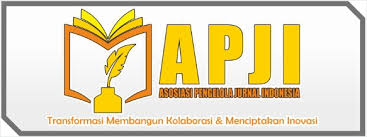Community Empowerment through Waste Management into Ecobricks
DOI:
https://doi.org/10.70610/iare.v2i2.502Keywords:
Ecobricks, Socialization, Waste UtilizationAbstract
Plastic waste in eco-bricks is one of the innovative solutions to reduce the negative impact of plastic waste on the environment. Ecobricks are plastic bottles filled densely with non-organic plastic waste cut into small pieces, forming a sturdy building material that can be used for various construction purposes. The socialization program for the use of waste in eco-bricks is one of the important initiatives in overcoming the increasingly worrying problem of plastic waste. This program aims to increase public awareness about the importance of plastic waste management, reduce the amount of plastic waste that ends up in landfills, and provide alternatives to using plastic waste that is more useful. This service uses the PAR (Participatory Action Research) method by directly providing education to students, including the lecture and question and answer method. Through this socialization, the community is invited to actively participate in making eco-bricks, understand the techniques and benefits, and apply them in daily life. The result of this service is creating a cleaner environment, reducing plastic pollution, and forming collective awareness to preserve the environment through concrete actions. This service concludes that eco-bricks are an effective and sustainable solution to overcome the problem of plastic waste while providing added value to the community. Further development and socialization of the use of eco-bricks are expected to encourage wider participation from the community in managing plastic waste creatively and environmentally friendly.
References
Abdallah, M., Talib, M. A., Feroz, S., Nasir, Q., Abdalla, H., & Mahfood, B. (2020). Artificial intelligence applications in solid waste management: A systematic research review. Waste Management, 109, 231–246.
Allen, D. E., Duch, B. J., & Groh, S. E. (1996). The power of problem-based learning in teaching introductory science courses. New Directions for Teaching and Learning, 1996(68). https://doi.org/10.1002/tl.37219966808
Anh Khoa, T., Phuc, C. H., Lam, P. D., Nhu, L. M. B., Trong, N. M., Phuong, N. T. H., Dung, N. Van, Tan-Y, N., Nguyen, H. N., & Duc, D. N. M. (2020). Waste management system using IoT-based machine learning in university. Wireless Communications and Mobile Computing, 2020, 1–13.
Antico, F. C., Wiener, M. J., Araya-Letelier, G., & Retamal, R. G. (2017). Eco-bricks: A sustainable substitute for construction materials. Revista de La Construccion, 16(3), 518–526. https://doi.org/10.7764/RDLC.16.3.518
Ap. Moreira, G., & Wanda Rutkoskwi, E. (2021). Zero Waste Strategy for a Green Campus. Journal of Sustainability Perspectives, 1, 367–373. https://doi.org/10.14710/jsp.2021.12027
Arisona, R. D. (2018). Pengelolaan sampah 3R (Reduce, Reuse, Recycle) pada pembelajaran IPS untuk menumbuhkan karakter peduli lingkungan. Al Ulya: Jurnal Pendidikan Islam, 3(1), 39–51.
Awasthi, A. K., Cheela, V. R. S., D’Adamo, I., Iacovidou, E., Islam, M. R., Johnson, M., Miller, T. R., Parajuly, K., Parchomenko, A., Radhakrishan, L., Zhao, M., Zhang, C., & Li, J. (2021). Zero waste approach towards a sustainable waste management. Resources, Environment and Sustainability, 3(January), 100014. https://doi.org/10.1016/j.resenv.2021.100014
Chams, N., & García-Blandón, J. (2019). On the importance of sustainable human resource management for the adoption of sustainable development goals. Resources, Conservation and Recycling, 141, 109–122.
Chaves-Avila, R., & Gallego-Bono, J. R. (2020). Transformative policies for the social and solidarity economy: The new generation of public policies fostering the social economy in order to achieve sustainable development goals. The European and Spanish cases. Sustainability, 12(10), 4059.
Haghdan, S., & Smith, G. D. (2015). Natural fiber reinforced polyester composites: A literature review. Journal of Reinforced Plastics and Composites, 34(14), 1179–1190. https://doi.org/10.1177/0731684415588938
Hasanah, Y. (2021). Eco enzyme and its benefits for organic rice production and disinfectant. Journal of Saintech Transfer, 3(2), 119–128. https://doi.org/10.32734/jst.v3i2.4519
Hemalatha, M., & Visantini, P. (2020). Potential use of eco-enzyme for the treatment of metal-based effluent. IOP Conference Series: Materials Science and Engineering, 716(1). https://doi.org/10.1088/1757-899X/716/1/012016
Ibn-Mohammed, T., Mustapha, K. B., Godsell, J., Adamu, Z., Babatunde, K. A., Akintade, D. D., Acquaye, A., Fujii, H., Ndiaye, M. M., & Yamoah, F. A. (2021). A critical analysis of the impacts of COVID-19 on the global economy and ecosystems and opportunities for circular economy strategies. Resources, Conservation and Recycling, 164, 105169.
Jamiah, Y., Fatmawati, F., & Purwaningsih, E. (2019). Internalization of Students’ Nationalism Sense through Outbound Learning Based on Local Wisdom. JETL (Journal Of Education, Teaching and Learning), 4(2), 339–344. https://doi.org/10.26737/jetl.v4i2.1642
Kasapa, A., & Gyan, C. (2023). Community Participation in Planning Social Infrastructure Delivery in Ghana’s Local Government: A Case Study of Shai Osudoku District. Journal of Development Policy and Practice, 24551333231165830.
Mohamed, R. M. S. R., Al-Gheethi, A. A., & Yaakob, M. A. (2017). Recycling of solid wastes at kindergartens centers. Songklanakarin Journal of Science and Technology, 39(1), 69–75. https://doi.org/10.14456/sjst-psu.2017.8
Nabilah Mokhtar, Lim Zhi Xuan, Lokman, H. F., & Noor Hayati Che Mat, N. H. C. M. (2023). Theory, Literature Review, and Fun Learning Method Effectiveness in Teaching and Learning. International Journal of Social Science and Education Research Studies, 03(08), 1738–1744. https://doi.org/10.55677/ijssers/v03i8y2023-30
Nirmalasari, R., Ari Khomsani, A., Nur’aini Rahayu, D., Lidia, L., Rahayu, M., Anwar, M. R., Syahrudin, M., Jennah, R., Syafiyah, S., Suriadi, S., & Setiawan, Y. (2021). Pemanfaatan Limbah Sampah Plastik Menggunakan Metode Ecobrick di Desa Luwuk Kanan. Jurnal SOLMA, 10(3), 469–477. https://doi.org/10.22236/solma.v10i3.7905
Rane, N. (2023). Integrating leading-edge artificial intelligence (AI), internet of things (IoT), and big data technologies for smart and sustainable architecture, engineering and construction (AEC) industry: Challenges and future directions. Engineering and Construction (AEC) Industry: Challenges and Future Directions (September 24, 2023).
Ranti, Y. paula. (2021). Biofarmasetikal Tropis Biofarmasetikal Tropis. The Tropical Journal of Biopharmaceutical, 2(2), 158–169.
Ripno, R., Nathalia, T. C., & Pramomo, R. (2021). Waste Management in Supporting Sustainable Tourism Case Study of Tourism Destination Malioboro Yogyakarta. International Journal of Social, Policy and Law, 2(2), 1–4.
Salviana, V., Fuadiputra, I. R., Bustami, M. R., & Jha, G. K. (2022). Participatory Action Research ( PAR ) Model for Developing A Tourism Village in Indonesia. Journal of Local Government Issues ( LOGOS ), 5(2), 193–207.
Soliati, S. (2019). Community empowerment in managing waste through takakura training. Jurnal Empowerment, 8(1), 48–54.
Wilyanti, L. S., Wulandari, S., Asfahani, A., & Priyanto, P. (2023). Pelatihan Penggunaan Aplikasi Mendeley untuk Sitasi Artikel Ilmiah pada Jurnal Bereputasi Nasional. Amalee: Indonesian Journal of Community Research and Engagement, 4(1), 55–64.
Zebua, R. S. Y. (2021). The Implementation of Character Building to Improve Resident Participation in Waste Management. IOP Conference Series: Earth and Environmental Science, 810(1), 12025.
Downloads
Published
How to Cite
Issue
Section
License
Copyright (c) 2024 Ghilmanul Ardan, Inge Wiliandani Setya Putri, Arik Aguk Wardoyo, Zahrotul Putty Perdani, Vikka Fatimatus Zahro, Mohammad Sheidqi Maulana

This work is licensed under a Creative Commons Attribution-NonCommercial-ShareAlike 4.0 International License.
License: CC BY-SA 4.0 (Creative Commons Attribution-ShareAlike 4.0 International License)






 MoU
MoU 


